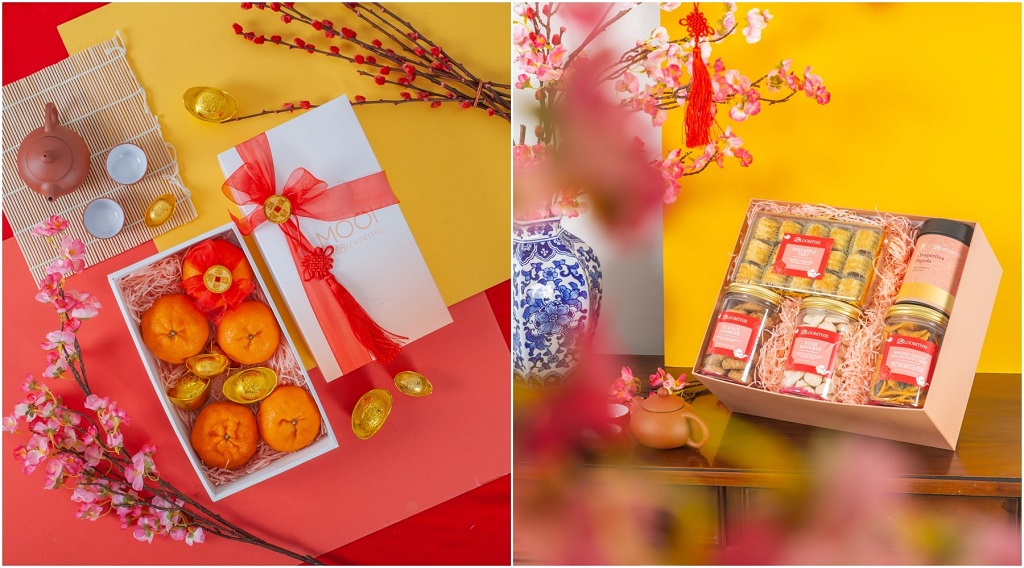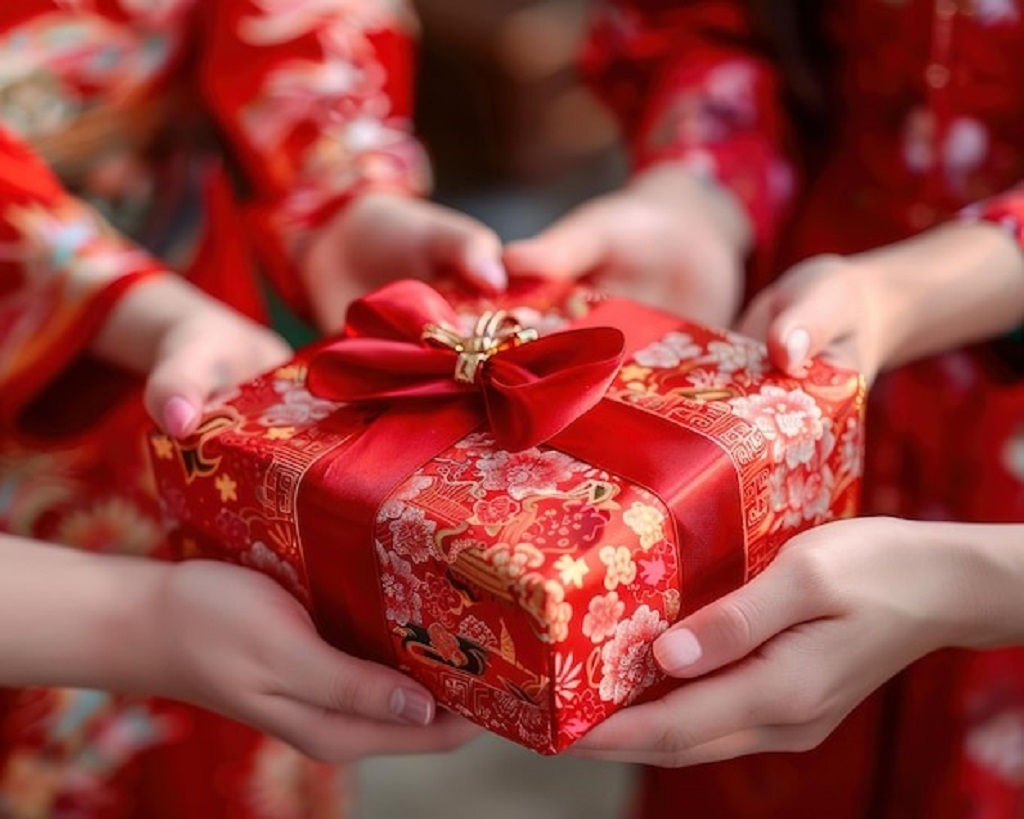
How to Evolve Inkay in Pokémon Go: A Step-by-Step Guide for 2024
December 8, 2024
What is the Gift for a 20th Anniversary?
December 9, 2024What to Give as a Gift for Chinese New Year: A Complete Guide
Chinese New Year, also known as the Spring Festival, is the most significant holiday in Chinese culture. It is a time for family reunions, festive meals, and expressing good wishes for the year ahead. One of the most exciting aspects of the holiday is the tradition of gift-giving. If you’re wondering what to give as a gift for Chinese New Year, this article will help guide you through the cultural nuances, the types of gifts that are popular, and the etiquette you should follow to ensure your gesture is well-received.
Table of Contents
ToggleWhy is Gift-Giving Important During Chinese New Year?
Gift-giving during Chinese New Year is a way to express good wishes for prosperity, happiness, and health in the coming year. It is deeply tied to the customs and symbolism of the holiday. For example, the color red is considered auspicious, symbolizing good luck and warding off evil spirits. Additionally, the act of giving gifts represents the strengthening of relationships, whether with family, friends, or business partners.
However, it’s important to note that Chinese New Year gifts are not meant to be extravagant; instead, the focus is on thoughtfulness and meaning behind the gift. The best gifts reflect the giver’s respect and well wishes for the recipient.
Read More Also: What Is a Good Valentine’s Gift for Your Boyfriend?
Popular Gift Ideas for Chinese New Year
- Red Envelopes (Hongbao)
The red envelope, or hongbao in Mandarin, is one of the most popular and traditional gifts for Chinese New Year. It is usually filled with money and given to children, unmarried young adults, or employees. The red color of the envelope symbolizes luck and protection from evil spirits. The amount of money inside the envelope should generally be an even number because odd numbers are associated with funerals. However, numbers such as 4 are considered unlucky because they sound like the word for “death” in Chinese, so avoid using them.
The amount given varies depending on your relationship with the recipient. For children, small amounts are common, while for business associates, larger amounts might be given to show respect. The gesture of giving a red envelope is one of the most cherished traditions during Chinese New Year.
- Fruit Baskets
Fruit baskets are a traditional and thoughtful gift for Chinese New Year. They are typically filled with citrus fruits, which are associated with good fortune, wealth, and prosperity. Oranges, tangerines, and pomelos are popular choices, as their round shape and vibrant color symbolize wealth and happiness.
A well-arranged fruit basket can also show that you have taken the time to consider the recipient’s well-being. It is not only a symbol of prosperity but also a practical gift that can be shared by families.
- Tea Sets or Tea
Tea is an integral part of Chinese culture, and gifting high-quality tea or a beautifully crafted tea set is a gesture that is both meaningful and respectful. Green tea, oolong tea, or pu-erh tea are all excellent choices. For a special touch, you might want to consider giving premium tea leaves, which are often packaged in ornate boxes or containers.
A tea set, particularly one made of porcelain or clay, makes for an elegant gift that can be appreciated during family gatherings or special occasions. The gift of tea signifies health, peace, and tranquility—qualities that are much desired in the New Year.
- Chinese Sweets and Snacks
Chinese New Year is also a time for indulging in sweet treats, and giving boxes of traditional Chinese sweets or snacks is a delightful gift. Popular items include nian gao (glutinous rice cake), tang yuan (sweet rice balls), and feng mi (honey). These snacks symbolize the wish for sweetness, family unity, and happiness.
In addition to traditional sweets, packaged assortments of nuts, dried fruits, and candies can also be given. These edible gifts are not only appreciated for their deliciousness but also symbolize wealth and good fortune.
- Clothing and Accessories
Clothing, especially in auspicious colors like red, is a thoughtful and well-received gift during Chinese New Year. Red is considered a lucky color, symbolizing good fortune and happiness. Gifts like red scarves, jackets, or socks are practical, but they also carry the symbolism of prosperity.
For those with a more personal relationship, luxury items like silk scarves or high-end handbags may also make suitable gifts. These items express respect and affection, and they are sure to be appreciated.
- Decorative Items
Gifts that enhance the home are also a popular choice for Chinese New Year. Items like decorative lanterns, auspicious figurines (such as the Laughing Buddha or zodiac animal figurines), and calligraphy scrolls with well-wishing phrases are great options. These items are often placed around the house to bring positive energy, good luck, and happiness.
A well-chosen decorative gift can bring charm and festive spirit to the recipient’s home while aligning with the themes of prosperity and good fortune.
Gift-Giving Etiquette to Keep in Mind
When giving gifts for Chinese New Year, there are a few important rules and customs to consider:
- Avoid Giving Certain Gifts While Chinese New Year is a time of celebration, there are some gifts that should be avoided due to their negative connotations. For example:
- Clocks: The Chinese word for clock sounds similar to the word for “end” or “death,” so gifting a clock is considered inauspicious.
- Sharp Objects: Giving scissors, knives, or anything sharp can symbolize cutting off a relationship, which is undesirable.
- Umbrellas: The word for umbrella sounds like “separation,” which is seen as bad luck.
- Present the Gift with Both Hands When presenting a gift, always offer it with both hands as a sign of respect. This is particularly important when giving gifts to elders or those in authority.
- Be Mindful of the Color of the Gift Wrap Red is the most auspicious color during Chinese New Year, so it’s ideal to wrap your gift in red paper or a red bag. Avoid wrapping gifts in white or black paper, as these colors are associated with mourning and funerals.
- Don’t Expect Immediate Thanks It is customary for the recipient to wait until later to express their gratitude for the gift. The gesture of giving is seen as more important than the immediate thanks.
FAQs
Q: Can I give a gift to my boss or colleagues? A: Yes, giving gifts to business associates or colleagues is common during Chinese New Year. It shows appreciation and can help foster stronger relationships. However, it’s important to choose gifts that are not too extravagant to avoid appearing insincere.
Q: How much money should I put in a red envelope? A: The amount of money placed in a red envelope depends on your relationship with the recipient. For children, small amounts are typical, while for close family members or business partners, larger amounts are appropriate. Avoid using the number 4, as it is associated with bad luck.
Q: Is it appropriate to give gifts to friends? A: Yes, giving gifts to friends is a common tradition. The gifts don’t need to be overly expensive but should reflect your thoughtfulness. Personal touches, such as giving a favorite snack or drink, can make the gift even more meaningful.
Conclusion
Gift-giving during Chinese New Year is a heartfelt tradition that brings people together and expresses well-wishes for the year ahead. Whether you choose to give a red envelope, fruit basket, tea set, or decorative item, the key is to make the gesture meaningful. By being mindful of the customs and traditions, you can ensure that your gift is appreciated and respected, and you’ll be able to share in the joy of this vibrant celebration.





